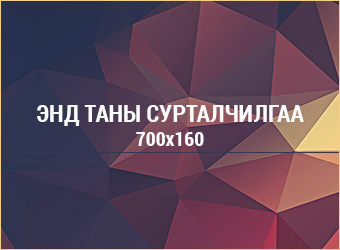Article
Democracy Does Not Come Cheaply – Elections Should Cost Money

7 min
There is no democracy without elections, elections are at the very core of democracy. They are the means by which citizens offer their view on developments of the country by selecting people and parties whose political views they agree with. Elections need to be held with regularity so that citizens can recognize whom they entrust with power and for how long.
Ideally, voters have a choice between multiple competing candidates who are advocating for different solutions for challenges that their community, region or the nation are facing. Candidates explain their reasoning in arguing for specific solutions or against alternatives. When this reasoning adds up to a pattern, it forms part of a political perspective that parties adopt. Parties advocating for justice and equality prefer different patterns of solution to those offered by parties who believe that markets and individual decision-making generate positive solutions. Most importantly, voters have an opportunity to select one political perspective among several that are on offer.
Because elections are so central to democracy, they should only be postponed or repeated under the most extreme of circumstances. The COVID-19 pandemic may well be one such circumstances. Some particularly hard-hit countries in Europe have already postponed local elections or moved them entirely to mail-ballots. The reason for these decisions has been the risk of infection when voters gather at polling stations. But this is a severe restriction of citizens’ civil and political rights that should not be taken lightly, must be carefully considered by parliaments and should be closely examined by opposition forces and civil society.
What does this mean for Mongolia? Many voters are frustrated with a political system that does not seem to offer a policy choice to voters. Can anyone really recognize a pattern in Mongolian decision-making that adds up to a political perspective that would allow voters to decide whether they agree with this perspective or not? The lack of a substantive orientation of political parties may be one of the main challenges that Mongolian democracy is facing, but that is even more reason to insist on elections to give voters the chance to vote for new or different political voices. It is only in a democracy that governing parties face an end to their government when the people no longer believe in the solutions this party is offering. If you want a different kind of politics, demand it of your representatives. Such demands work just like oil changes (used to) in cars. Without maintenance the democratic engine does not run smoothly. Elections represent the opportunity not to re-elect corrupt or incompetent representatives or to elect those who are engaged, honest and dedicated to the nation’s welfare.
Mongolians should not be denied this opportunity for renewal of the political engine. Waiting too long for an oil change can lead to the ruin of the engine. Regular maintenance is always worth its cost when it contributes to the long-term longevity of the engine. Saving money on maintenance now risks much greater damage later on.
And how expensive is the democracy oil change really? The parliamentary and presidential elections in 2016 and 2017, respectively, cost roughly MNT15b. For this year’s parliamentary election MNT20b of public funds have been allocated. That amount will not only pay for the actual administration of the vote, but will also provide resources to educate Mongolians, in particular but not only first-time voters. That political education is also part of the regular renewal of democracy through elections and especially important when the Mongolian parliament has insisted on changing the electoral system with every election for the past decade.
Another part of the public resources spent on the election is specifically earmarked to build trust in the election results among the citizenry. Compared to many countries, certainly compared to almost all OECD countries, the amount and extent of deployment of technologies in Mongolia is extensive to administer but also to monitor the election. Election results that are shown to be manipulated by evidence do not contribute to a democratic renewal which makes monitoring technologies an important element of the administration of Mongolian elections.
But perhaps most significantly, the vast majority of money spent on the elections is private money spent by candidates and parties. As few public resources are offered to political parties and candidates, contrary to several drafts of political finance legislation offered by Mongolian advocates, private funds are thrown at elections. This creates competitive pressures on candidates who are truly dedicated to the public good as much as it does for self-interest, corrupt candidates. It is not the administration of elections that is driven costs for the process up, but it is candidates who treat politics as a business who are at fault for this.
In comparative perspective, Mongolia spends relatively little money on democracy. The Ikh Khural is relatively small, MPs are not paid very much nor are big political staffs paid for, parties receive very little public funding. It should be clear to everyone that this is not a good place to save money. When politicians and parties have to drum up private funds to support their work, they are particularly vulnerable to corruption. Conversely, political activities that are publicly funded, are more likely oriented toward the public good. Cheap democracy is unlikely to be the best democracy and to produce the best outcomes for its citizens.
April 2020
Julian Dierkes is Associate Professor at the University of British Columbia’s School of Public Policy and Global Affairs. He is one of the principal authors of the Mongolia Focus blog.
Niels Hegewisch is a political scientist and the Mongolia country representative for the Friedrich-Ebert-Foundation, a German political foundation that is dedicated to global promotion of freedom, justice and solidarity.
Like the article?
Comments (0)
Upvote
0 people (0%)
Түдгэлзсэн
0 people (0%)
Дэмжээгүй
0 people (0%)










 @
jargaldefacto
@
jargaldefacto 
 @
jariunaa1
@
jariunaa1 
